Having just moved to Bangkok with her two kids, after nine years spent (on a beach) in south Thailand, Kati Häkkinen felt quite starved for all things Finnish. Quickly finding out that there were in fact quite a few Finnish women living in the capital, but with no organised network, she set out to establish Finwa, Finnish Women Abroad, Bangkok.
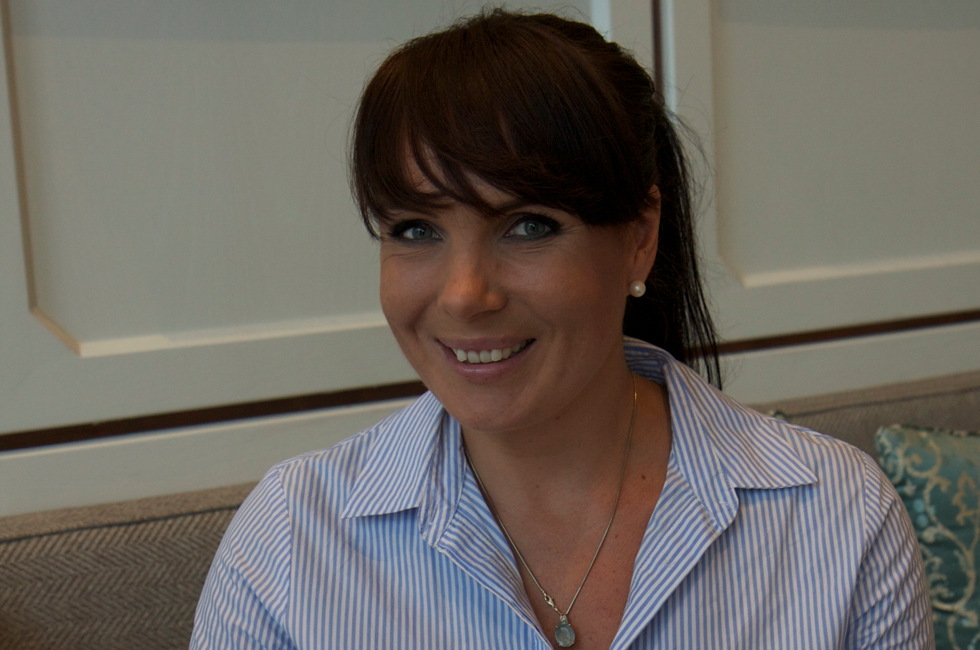
Finwa Chairwoman Kati is a co-owner and co-founder of Aava Resort & Spa in Khanom, just south of Surat Thani, which she runs with her business partner and former husband Atte.
“I hadn’t talked much Finnish with anyone except with the kids and coming to Bangkok we did not know that many people here. Then I realised there was no Finnish women’s club, and got the idea. There were some Finnish women around, also the newly arrived Finnish ambassador Satu Suikkari-Kleven encourage me to start Finwa.”
Close to 30 women have since then joined and around 15 attend the monthly meetings.
“Now, our rules say we do take all nationalities who somehow are in touch with Finland; has studied or lived in Finland or married with Finnish person. But, so far, we have only Finnish women who joined. We converse in Finnish!”
Most Finnish women in Bangkok are working here, so we cannot meet during the day on weekdays.
“For example, they are teacher in the KIS, doctor in Mahidol University, embassy employees and entrepreneurs. Also, some are housewives, so I think it’s really a nice combination.”
Quite soon the association has turned to running activities, including one that bring a strong element of Finland to Thailand: The Baby box, which is a Finnish maternity package.
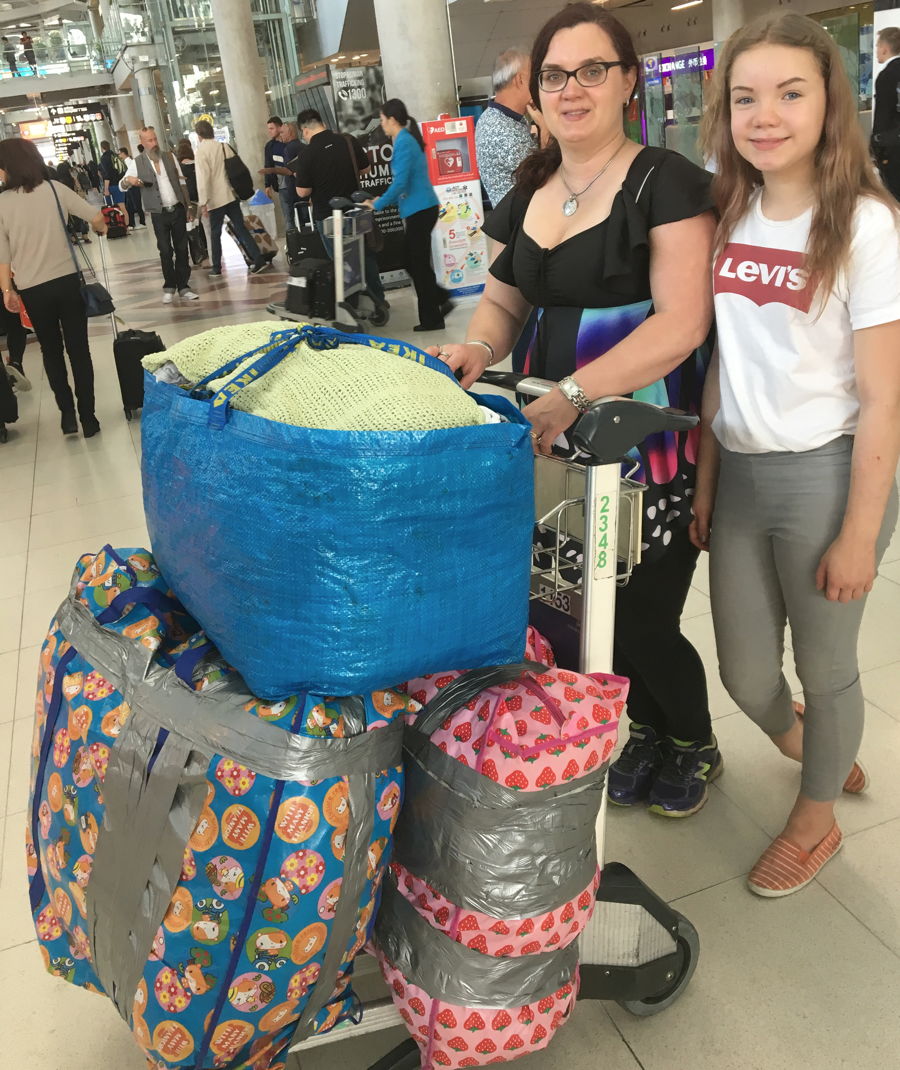
“When we got together it was quite obvious that everybody wanted to do something good. We all, living abroad and especially in Southeast Asia, know that we are very privileged to be born in a country like Finland. We wanted to do something good with the knowledge that we have and the things that we’ve got. We concentrate on charity and to give something back to women and girls here in Thailand and hopefully in the future in nearby countries as well. The FinnBox for Babies is Finwa’s first project.
“Finland is known for this Baby box which has been given to all expectant mothers since back in the 1930s, no matter what the family’s income is and it’s full of amenities and necessities for babies and the mother and family. This includes baby clothes, winter clothes, feeding things, thermometer… all kinds of things. The value of that box nowadays is something like 700 euros, so very valuable.”
“And we want to give this box here in Thailand to unprivileged mothers, in areas where people are not recognised by anyone, including very young mothers and those with HIV. We have concentrated the work on collecting things or partnering with the companies, getting funding and donations and things that are needed for the box. The value of this box is around 3300 baht, which has high value for someone who is poor. We believe that in the future some other projects bigger than us or even some community, city or hospital would like to take on the project as a concept. We’d like to see this continuing.”
“Now we started to collect items from Finland to be sent here. We are running campaigns on Facebook and whoever comes here from Finland takes as much clothes as possible with them.”
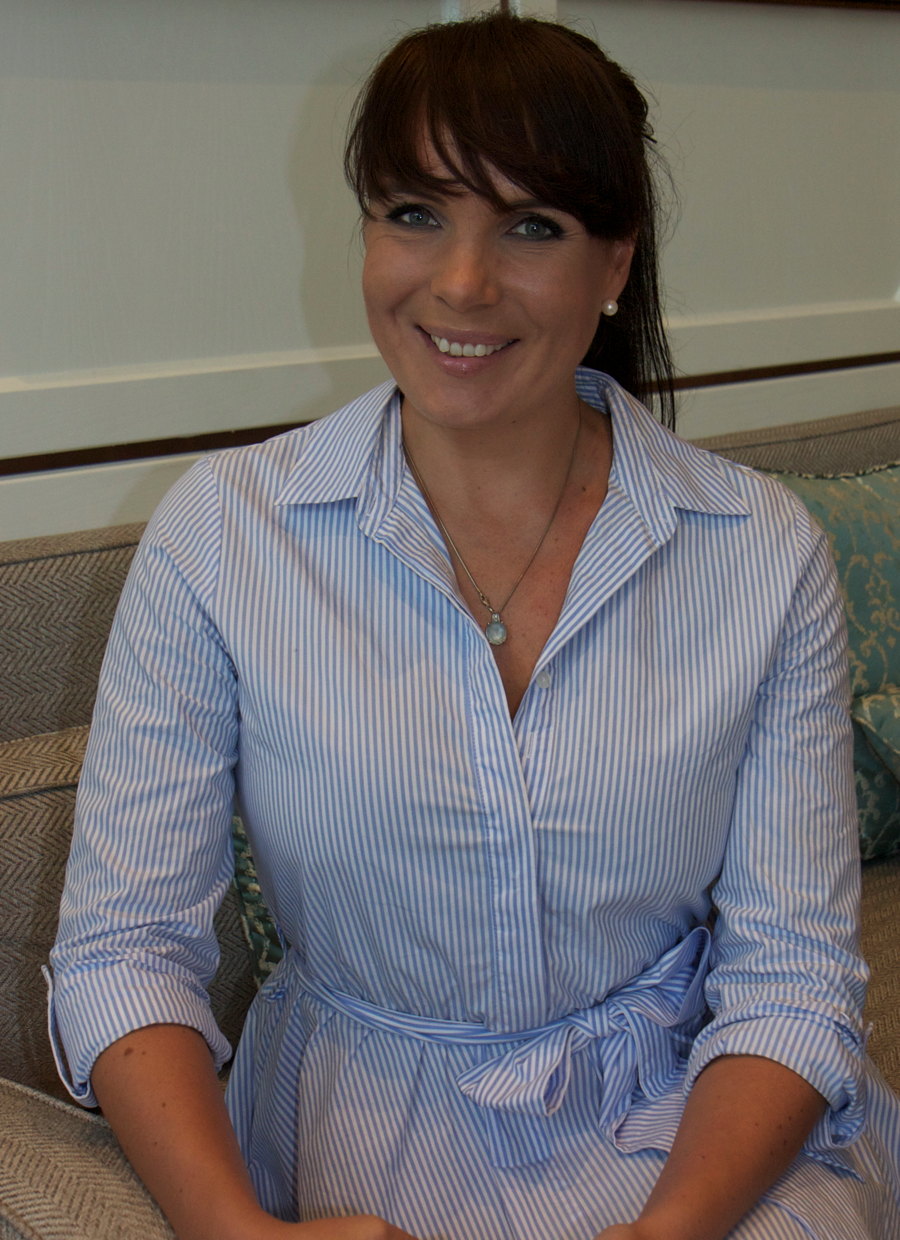 The first Baby boxes Finwa handed out was a simple version, a trial if you like, at Home of Grace, which is supported by Lutheran Church of Thailand and that Scandinavian churches works with.
The first Baby boxes Finwa handed out was a simple version, a trial if you like, at Home of Grace, which is supported by Lutheran Church of Thailand and that Scandinavian churches works with.
“It’s a temporary home for pregnant mothers who are in really tough situations and funded by Finnish and Norwegian churches. We handed out first 6-7 boxes there, to see what the feedback was. And it was fantastic to see the response from the mothers, how happy they were that somebody wanted to do something good for them and that somebody was thinking of them,” thinks Kati.
In Thailand, some girls become mothers at very young age and then have to leave school so their self-development stops there.
“I hope that our group’s activities, and even the maternity box, can somehow by small steps show them that they could actually survive as single mothers. Maybe we could start to change this society! But the first thing is to teach the kids to understand safe sex and things like that. The maternity box has condoms and there will be information including leaflets.”
For Kati, personally, the move to Bangkok with small children has not been without challenges – of the kind expatriates face in Thailand’s infamous micro-society. The main purpose of moving was to get the children into better education and a chance to study also the Finnish language.
“In the beginning, it was difficult. I had once moved from Finland to Spain, and from Finland to Thailand so for me I already knew what to expect. But for our kids and our nanny moving from the countryside to the big city has been more difficult.”
The older of the siblings, Nino, was bound for international school, but his Thai school year had ended in the spring. However, KIS International School took him in without having to wait for next term to begin (which happens much later than Thai school).
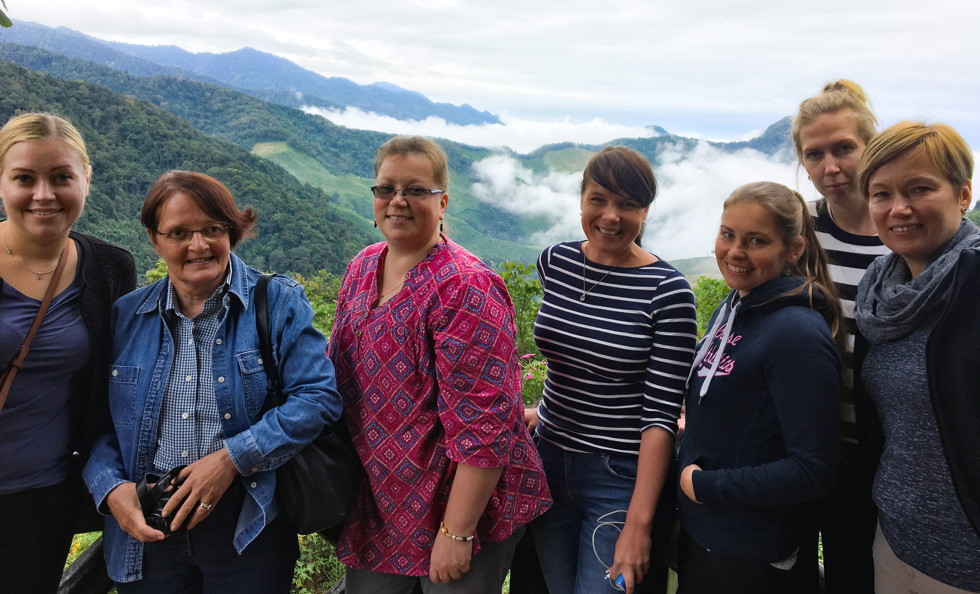
“He already reads and writes Thai, but his sister Aida, who is only six, does not yet read and write Thai, so we wanted her to be in very good Thai school until she learns to read and write. We chose Amnuay Silpa School for her.”
“Aida’s school was challenging because we first tried to get also Nino in there so they would be in the same school. But there was no place available for his class. And they only took Aida there. So, this year we ended up with two schools and with different school semesters and the two schools are located on opposite sides of the city. So, it’s been an interesting year!” smiles Kati.
Especially as some more serious trouble with Thai authorities had suddenly emerged in the process: “We got big problems when we signed up Aida to this private Thai school, which, without international school status is not allowed to take foreign students. Aida is born in Thailand and has Thai birth certificate and has never had an address in Finland. But the Thai education ministry still considered her to be an international student so it was really difficult to get her Education visa for that school.”
To add insult to injury Nakorn Si Thammarat immigration, where the parents’ business visas are from, refused to extend the children’s O-visas because they now studied in Bangkok. “It is solved now, after some cursing and crying and screaming at the immigration. Sometimes there is no way; if you need the visa you just need to do it. You just need to find a way how to get it.”
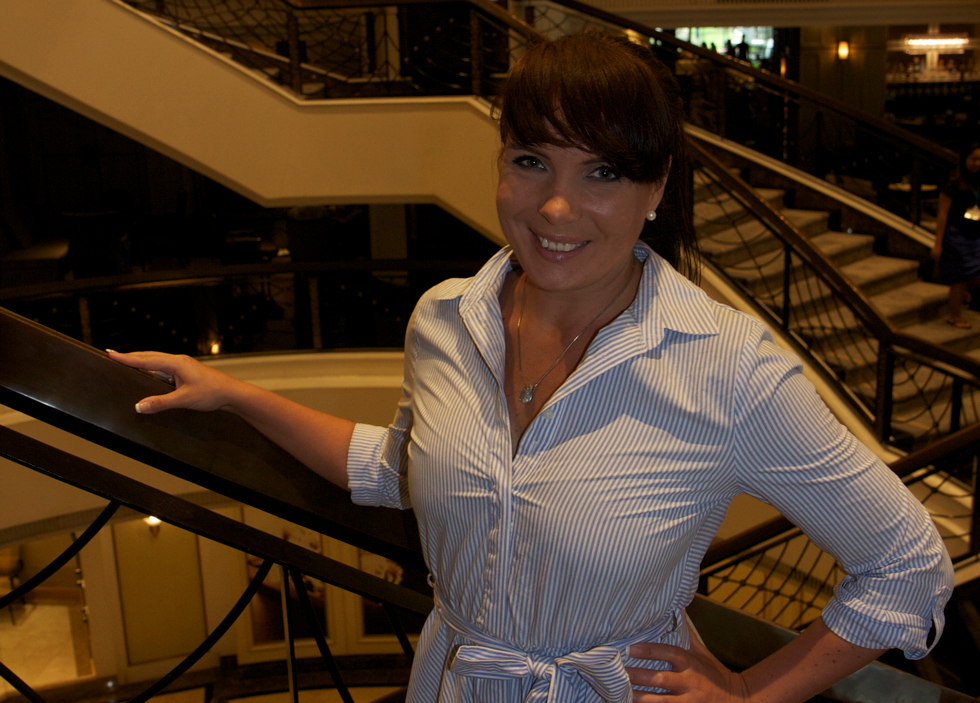
“We had never before had any problems with visas or work permits or anything and now when I put my daughter in a really expensive Thai school where every Thai parents would like their kids to study I am having problems to get visa for my daughter who is born in Thailand! That was just beyond my comprehension.”
“The positive thing is that while I was in the middle of the battle with immigration I sought help from the correct authorities, I’ve been now informed that Aida’s case is used as an example case when new immigration regulations are being set how foreign kids who are born in this country should be seen.”
The other benefit for the children in Bangkok is to be able to attend the Finnish school. “I’m so happy that we’ve got Bansku – Finnish School here in Bangkok! After having lived only among Thai kids Aida and Nino can now start to relate and see that they’re not that different to others. Also, they’ve started to become more interested in their roots by asking about things.”
Overall, to cope with the “arrangements”, as Kati also have her work duties concerning the resort, the family has had two nannies in Bangkok. A Finnish Au-Pair helps the kids 3-4 months of the year with Finnish language.
“I‘m a very strong-minded person and have decided that the kids should become tri-lingual. They spoke Thai and Finnish since they were born and have started learning English later. Now English and Thai are their school languages which they’ve learned to also write and read. They didn’t have that skill yet in Finnish so I hired a Finnish Au-pair who studies to become a language teacher for those who Finnish is a second language. And it has helped so much! I found her through Facebook post that started to spread online. I will do that again next year as I believe learning one’s mother language and communicating with it is one of the most important things we can give to our kids.”
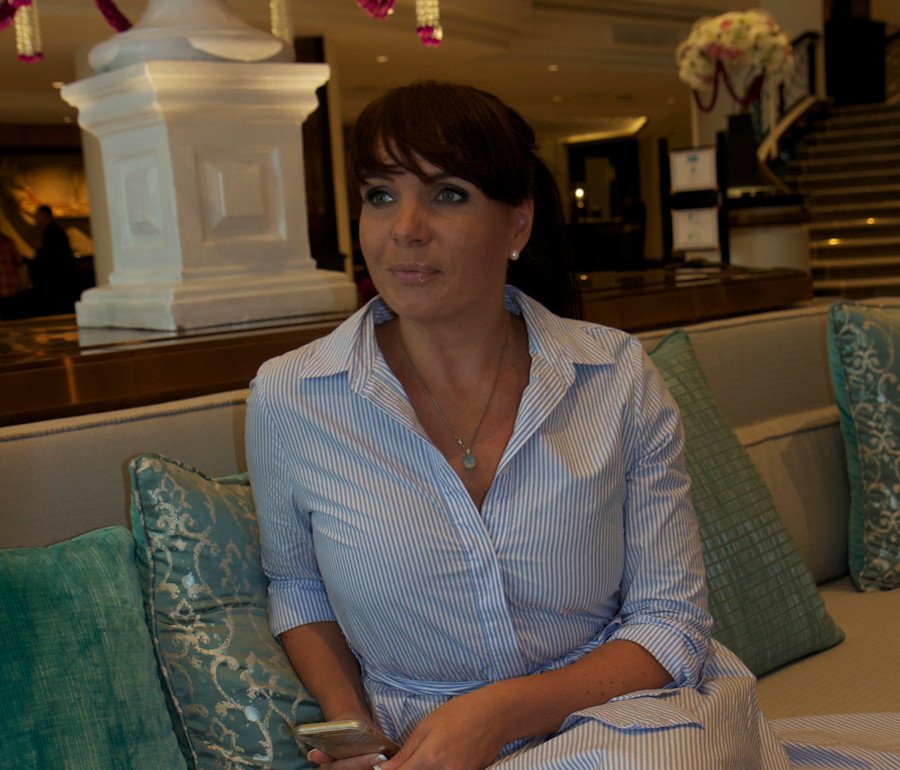
Kati’s, and other Finnish women’s experiences and know-how about Thailand is now a resource that can help other women from Finland who arrive here.
“Yes of course, we want to be help to newcomers. There is a lot of info and knowledge among us. I am the latest one moving here and going through the task of finding schools. And the process of applying to schools, immigration and visa issues, all those things…of course we are happy to help women and mothers.”
